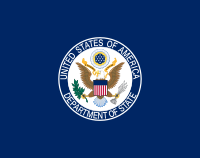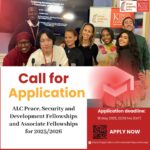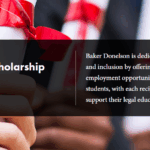Arts Grants Funding Opportunity Title: Strengthening US-Africa Ties with Arts, Culture, and Heritage
Arts Grants Funding Opportunity Number: NOFO 01/FY21
Application Deadline:
21st August 2021
CDFA Number: 19.040
About the Arts Grants:
The U.S. Mission to the African Union, Addis Ababa (USAU), Bureau of African Affairs of the U.S. Department of State announces an open competition for organizations to submit applications to carry out a program focused on the linkages between arts, culture, and heritage in the United States and in Africa. The United States has one of the largest African diasporas in the world and the contributions of African-Americans to every facet of the American experience has been immeasurable. This year, the African Union’s theme is “Arts, Culture, and Heritage: Levers for Building the Africa We Want,” and throughout the year USAU will underscore the African origins of certain aspects of American arts and culture, and highlight how arts and culture can be leveraged to address issues around peace & security, economic development, and democracy & good governance. Please follow all instructions below.
Program Objectives:
All proposals must incorporate linkages between arts, culture, and heritage in the United States and in Africa. All proposals should also be thematically relevant to one of the areas specified below:
- Expand and improve the relationship between the US and AUC
- Conflict prevention, mediation, & post-conflict development in Africa
- Economic development and partnership of the AU with US
- Highlight AU democracy building and good governance activities
- Support AU anti-corruption efforts
- Promote the rights of women and girls
- Capacity building of the youth of the AU and Africa in general
- Africa CDC capacity building
Public diplomacy programming strengthens cultural ties between the U.S. and African Union through cultural and exchange programming that highlights shared values and promotes bilateral and Multilateral cooperation. All programs must include an American cultural element, or connection with American expert/s, organization/s, or institution/s in a specific field that will promote increased understanding of U.S. policy and perspectives.
Examples of Public diplomacy programs include, but are not limited to:
- Cultural heritage conservation and preservation programs;
- Programs developed by an alumnus/a of a U.S. sponsored or supported educational or professional exchange program;
- Academic and professional lectures, seminars and speaker programs;
- Artistic and cultural workshops, joint performances and exhibitions;
- Programs developed by an alumnus/a of a U.S. sponsored or supported educational or professional exchange program;
- Programs that strengthen U.S. college and university relationships with local higher education institutions, businesses, and/or regional organizations.
Type of Award:
Grants
Eligibility for the Arts Grants:
Programs should target youth (under 35) audiences in Africa and the African diaspora.
- Eligible Applicants
The Public Affairs Section encourages applications from throughout Africa and from the African diaspora in the United States.
The following organizations are eligible to apply:
- Registered not-for-profit organizations, including think tanks and civil society/non-governmental organizations with programming experience
- Non-profit or governmental educational institutions
- Individuals will be considered, but priority is given to organizations or educational institutions with a proven track record of success
For-profit or commercial entities are not eligible to apply.
2. Cost Sharing or Matching
Cost sharing is not required but is strongly encouraged.
3. Other Eligibility Requirements
In order to be eligible to receive an award, all organizations must have a unique entity identifier (Data Universal Numbering System/DUNS number from Dun & Bradstreet), as well as a valid registration on www.SAM.gov. Please see Section D.3 for information on how to obtain these registrations. Individuals are not required to have a unique entity identifier or be registered in SAM.gov.
Applicants are only allowed to submit one proposal per individual/organization. If more than one proposal is submitted from an individual/organization, all proposals from that institution will be considered ineligible for funding.
Selection Criteria:
Each application submitted under this Arts Grants will be evaluated and rated on the basis of their completeness, coherence, clarity, and attention to detail. The criteria is designed to assess the quality of the proposed project and to determine the likelihood of its success. The criteria is closely related and is considered as a whole in judging the overall quality of an application.
Application Evaluation Criteria:
- Goals and Objectives– The project is likely to provide maximum impact in achieving the proposed results. The project addresses one or more of the U.S. Mission to the African Union Public Affairs Section priorities outlined above.
- Strengths and Innovation– Applicant clearly describes how its proposal will address the problem within the proposed time frame and articulates an innovative strategy or plan. The project builds civil society leadership and capacity and demonstrates sustainable capacity building.
- Mission priorities and U.S. Content: Applicant has clearly described how stated goals are related to and support U.S. Mission to the African Union priority areas or target audiences. It is clear how U.S. content will be incorporated into the program.
- Organizational Capacity– The organization has expertise in its stated field and PAS is confident of its ability to undertake the program. This includes a financial management system and a bank account.
- Sustainability– The organization demonstrates a clear plan for sustainable activity or impact of the activity after the grant period of performance.
- Budget and Budget Justification– The budget justification is detailed. Costs are reasonable in relation to the proposed activities and anticipated results. The budget is realistic, accounting for all necessary expenses to achieve proposed activities.
- Review and Selection Process
A Grants Review Committee will evaluate all eligible applications.
- Anticipated Announcement and Federal Award Dates
A Grants Review Committee will evaluate all eligible applications. We expect final funding decisions to be made no later than September 10. Organizations whose applications will not be funded will be notified via email.
Eligible Countries:
African countries
To be Taken at:
Sub-Saharan and North Africa
Number of Awards:
2 (depending on amount)
Value of Arts Grants:
- Award amounts: awards may range from a minimum of $20,000 to a maximum of $40,000
- Total available funding: $80,000
Duration of Award:
Proposed programs should be completed in three to nine months. The Department of State will entertain applications for continuation grants funded under these awards beyond the initial budget period on a non-competitive basis subject to availability of funds, satisfactory progress of the program, and a determination that continued funding would be in the best interest of the U.S. Department of State.
How to Apply for the Arts Grants:
Application forms for the Arts Grants required below are available at on https://www.grants.gov/web/grants/forms/sf-424-family.
Content of Application
Please follow all instructions below carefully. Proposals that do not meet the requirements of this announcement or fail to comply with the stated requirements will be ineligible.
Content of Application
Please ensure:
- The proposal clearly addresses the goals and objectives of this funding opportunity
- All documents are in English
- All budgets are in U.S. dollars
- All documents are formatted to 8 ½ x 11 paper, and
- All Microsoft Word documents are single-spaced, 12-point Times New Roman font, with
a minimum of 1-inch margins.
The following documents are required for consideration:
- Mandatory application forms
- SF-424 (Application for Federal Assistance – organizations) or SF-424-I (Application for Federal Assistance –individuals)
- SF424A (Budget Information for Non-Construction programs)
- SF424B (Assurances for Non-Construction programs)
- Summary Page: Cover sheet stating the applicant name and organization, proposal date, program title, program period proposed start and end date, and brief purpose of the program.
- Proposal (15 pages maximum): The proposal should contain sufficient information that anyone not familiar with it would understand exactly what the applicant wants to do. You may use your own proposal format, but it must include all the items below.
- Full Proposal (15 pages maximum): The proposal should contain sufficient information that anyone not familiar with it would understand exactly what the applicant wants to do. You may use your own proposal format, but it must include all the items below.
- Proposal Summary: Short narrative that outlines the proposed program, including program objectives and anticipated impact.
- Introduction to the Organization or Individual applying: A description of past and present operations, showing ability to carry out the program, including information on all previous grants from the U.S. Embassy and/or U.S. government agencies.
- Problem Statement: Clear, concise and well-supported statement of the problem to be addressed and why the proposed program is needed
- Program Goals and Objectives: The “goals” describe what the program is intended to achieve. What aspect of the relationship between the U.S. and Africa will be improved? The “objectives” refer to the intermediate accomplishments on the way to the goals. These should be achievable and measurable.
- Program Activities: Describe the program activities and how they will help achieve the objectives.
- Program Methods and Design: A description of how the program is expected to work to solve the stated problem and achieve the goal.
- Proposed Program Schedule: The proposed timeline for the program activities. Include the dates, times, and locations of planned activities and events.
- American Content: How will the program promote a better understanding of the U.S.? For example, will there be a U.S. citizen speaker or trainer, will U.S. developed training materials be used, or will U.S. exchange alumni run a program?
- Key Personnel:Names, titles, roles and experience/qualifications of key personnel involved in the program. What proportion of their time will be used in support of this program?
- Program Partners: List the names and type of involvement of key partner organizations and sub-awardees.
- Program Monitoring and Evaluation Plan:This is an important part of successful grants. Throughout the timeframe of the grant, how will the activities be monitored to ensure they are happening in a timely manner, and how will the program be evaluated to make sure it is meeting the goals of the grant?
- Future Funding or Sustainability:Applicant’s plan for continuing the program beyond the grant period, or the availability of other resources, if applicable.
- Branding Plan: Applicant’s plan for branding and promotional materials.
- Attachments (suggested examples):
- Budget Justification Narrative: After filling out the SF-424A Budget (above), use a separate sheet of paper to describe each of the budget expenses in detail. See section H. Other Information: Guidelines for Budget Submissions below for further information.
- Attachments :
- 1-page CV or resume of key personnel who are proposed for the program
- Letters of support from program partners describing the roles and responsibilities of each partner
- If your organization has a Negotiated Indirect Cost Rate Agreement (NICRA) and includes NICRA charges in the budget, your latest NICRA should be included as a PDF file.
- Official permission letters, if required for program activities
- Unique Entity Identifier and System for Award Management (SAM.gov)
Required Registrations:
Any applicant listed on the Excluded Parties List System (EPLS) in the System for Award Management (SAM) is not eligible to apply for an assistance award in accordance with the OMB guidelines at 2 CFR 180 that implement Executive Orders 12549 (3 CFR, 1986 Comp., p. 189) and 12689 (3 CFR, 1989 Comp., p. 235), “Debarment and Suspension.” Additionally, no entity listed on the EPLS can participate in any activities under an award. All applicants are strongly encouraged to review the EPLS in SAM to ensure that no ineligible entity is included.
All organizations applying for grants (except individuals) must obtain these registrations. All are free of charge:
- Unique entity identifier from Dun & Bradstreet (DUNS number)
- NCAGE/CAGE code
- SAM.gov registration
Step 1: Apply for a DUNS number and an NCAGE number (these can be completed simultaneously)
DUNS application: Organizations must have a Data Universal Numbering System (DUNS) number from Dun & Bradstreet. If your organization does not have one already, you may obtain one by calling 1-866-705-5711 or visiting http://fedgov.dnb.com/webform
NCAGE application: Application page here: https://eportal.nspa.nato.int/AC135Public/scage/CageList.aspx
Instructions for the NCAGE application process:
For NCAGE help from within the U.S., call 1-888-227-2423
For NCAGE help from outside the U.S., call 1-269-961-7766
Email NCAGE@dlis.dla.mil for any problems in getting an NCAGE code.
Step 2: After receiving the NCAGE Code, proceed to register in SAM.gov by logging onto: https://www.sam.gov. SAM registration must be renewed annually.
- It is important to go through all application requirements in the Award Webpage (see Link below) before applying.
- GOODLUCK
Visit the Arts Grants Webpage for Details










